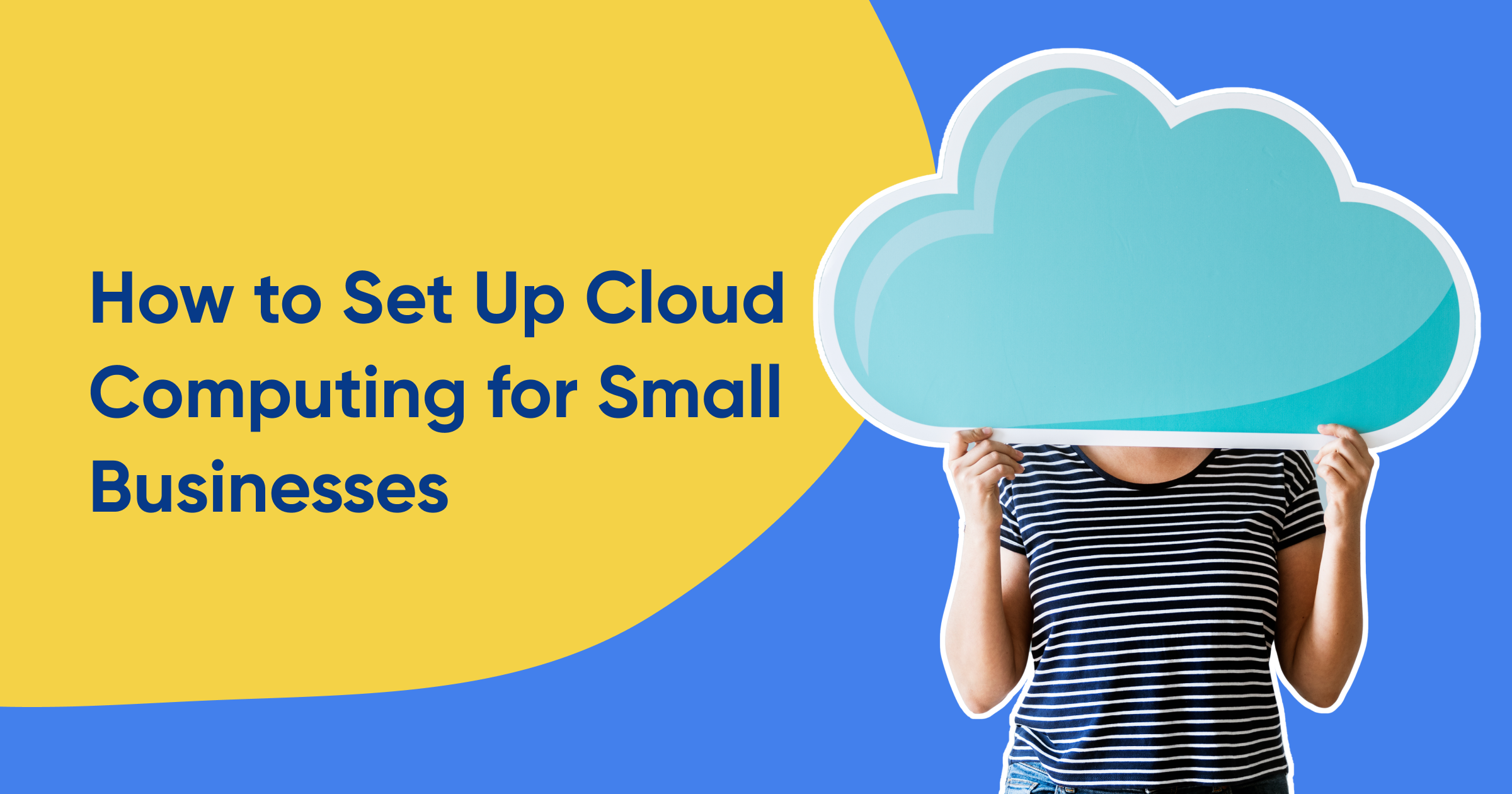Joshua Julien Brouard
21 September 2023 • 5 min read

Cloud computing — a buzzword as popular as terms such as AI. The cloud computing business is booming. And many business owners are wondering how to get into "the cloud," how it might benefit their business, and what it'll cost. Don't worry. In this article, I'll take you through how to set up cloud computing for small businesses.
Trust me, it's not as difficult as you might think.
So, as tempted as you might be to get immediately started with your cloud-based workplace, it's essential to reflect: why do you want cloud computing in the first place?
Cloud computing (like accounting software) has numerous benefits. These benefits include but are definitely not limited to the following:
Okay, so now that I've hopefully (and thoroughly) convinced you of the benefits of cloud service providers, let's go over how you can get set up:
Okay, so let's get started:
Do you anticipate growing your website significantly? What are the scaling needs of your small business? You need to ask these questions because otherwise, your decision will be pretty arbitrary.
There are hundreds of cloud services out there. You need to:
The second step to utilizing cloud services is to select a cloud server that you'd use to host your website, internal communications, and everything else. While I could go on for ages about this, I'll keep it brief.
(a) look at the cloud provider's certifications:
While there are a lot of certifications and standards to go over (and which could be their own article) — to keep it brief, always check to see if the cloud provider adheres to any particular frameworks or standards. And if you can't find information about this, contact their customer service for more information.
(b) consider data governance, accessibility, and management:
Here's the thing: a lot of confidential information about your company will go onto their servers. How concerned are you about this falling into the wrong hands (my guess is very)? With this in mind, make sure to ask them about this.
Ask yourself the following about the cloud service provider:
(c) how's the server performance?
Can you anticipate issues with page speed? How about failed messages? Look for client testimonials about this. It may even be a good idea to ask a question on a platform such as Reddit to get an idea.
These platforms come with many benefits. But let me go over a likely relatable example to start:
Terry has always used Microsoft Word to write his articles. He doesn't see it as a problem because he can work on it offline when needed. When he's done, he emails it to his boss, who deals with it from then on.
Terry's boss insists that he start using writing platforms with shareable links. What would be a convenient solution in this case?
Well, Google Docs, for one! Not only will all his work get safely stored on the cloud, meaning that he doesn't have to make physical backups for fear of losing it all. It also means that he can easily share his work with his boss without sending constant attachments, clogging up their email servers!
Provided you have a good and stable internet connection, this may be the right step forward for you, so:
Take your time and do some research. This means YouTube videos, customer review sites, and more. To get you started, here are a few helpful resources:
... Best of luck selecting the right cloud solution for you!
Small businesses can absolutely use cloud computing. It's not limited to large organizations with hefty budgets. There are many cloud service plans out there that are scaled down to suit business owners with less budget and fewer requirements.
There are only a few cloud storage options that offer lifetime plans. However, I do know of two reputable providers that offer this, namely:
Yes, using the cloud can be cheaper than traditional hosting because:
The cost of cloud services can vary significantly from package to package and provider-to-provider. However, typically, you can expect to pay anywhere from $5 to $40 per month. They’re quite cost-effective. A cloud server, on the other hand, can cost anywhere from $50 to $1000 monthly.
AUTHOR
Joshua J. Brouard has a diverse background. He has studied bachelor of commerce with a major in law, completed SEO and digital marketing certifications, and has years of experience in content marketing. Skilled in a wide range of topics, he's a versatile and knowledgeable writer.
Related Blogs

How to Renew a Trademark: A Guide That M...
17 May 2024 • 5 min read

How to Trademark a Name | Exploring the ...
17 May 2024 • 8 min read
.png%3Falt%3Dmedia%26token%3D61e4c1a1-34ee-427f-8cbe-48da50784682&w=256&q=75)
Will Palworld Get Copyrighted? (+ the Po...
17 May 2024 • 5 min read

7 Tips to Protect Your Business from Bra...
17 May 2024 • 8 min read

Can OpenAI Trademark GPT? (It’s Not That...
17 May 2024 • 3 min read